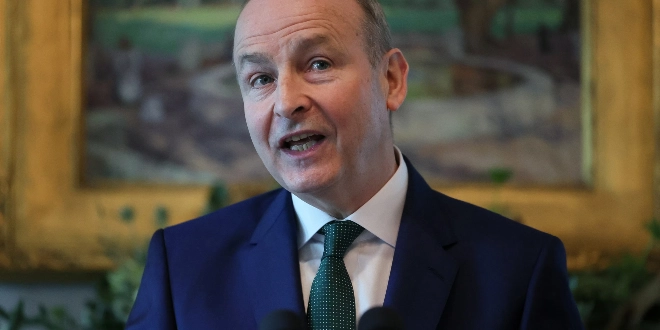Taoiseach Micheál Martin has reaffirmed that Ireland’s top priority is safeguarding jobs and economic stability, expressing confidence that the country will overcome the challenges posed by new US import tariffs. His comments came after US President Donald Trump announced a 20% levy on EU imports, igniting concern across European capitals and especially in Ireland due to the country’s heavy reliance on transatlantic trade.
Although the tariffs took immediate effect, Martin emphasized that it is still too early to discuss direct financial supports for affected businesses. However, he anticipated that negotiations with the US would follow and stressed the need for a measured and collaborative response.
Martin noted that tariffs contribute to inflation and negatively impact both European and American consumers. While expressing deep regret over Washington’s decision, he reiterated that Ireland and the European Union would respond thoughtfully, focusing on defending the interests of workers, businesses, and citizens.
He underlined that as a small and open economy, Ireland has long thrived on free and fair trade, and the new duties will inevitably pose economic challenges. Nevertheless, the government is committed to working through the EU to pursue dialogue over confrontation and to preserve the strong transatlantic relationship.
EU Response and Sector-Specific Concerns
Standing beside the Taoiseach, European Commissioner Michael McGrath called for restraint in crafting a counter-response to the US measures. He confirmed that the EU is preparing a series of defensive trade steps, beginning with steel and expanding to additional sectors if talks break down. He stressed that the goal is not retaliation, but ensuring a space for meaningful negotiation.
Tánaiste Simon Harris also addressed the situation, revealing that the government expects the pharmaceutical sector—currently exempt from the new tariffs—to eventually be targeted. He cited President Trump’s previous indications of interest in imposing additional duties on pharmaceuticals, semiconductors, and lumber.
Harris pointed out that the bulk of pharmaceutical exports from Ireland to the US are not finished products but ingredients essential for American production lines and jobs. He urged continued engagement with Washington and added that the EU must be ready to respond firmly if necessary.
The Tánaiste reaffirmed that Europe remains the larger economic bloc and stressed the importance of negotiations over escalation. He said most EU members, including Denmark and the Netherlands, share Ireland’s concerns about the pharmaceutical industry and are pushing for unity in the EU’s strategy.
Stability and Strategy Over Retaliation
Minister for Enterprise Peter Burke echoed these sentiments, urging Irish businesses to stay calm and approach the situation strategically. Speaking to national media, he emphasized the need for a calculated response and reassured companies that the government is working with its European partners to soften the blow.
Burke warned that tariffs could backfire on US consumers and affirmed that the Irish government, along with the EU, aims to de-escalate tensions while defending national interests. He added that efforts are ongoing to reduce the scale of the tariffs and find common ground through discussion.
Across the Irish government, the tone has remained consistent—regret over the US actions, commitment to dialogue, and preparation for further developments, all while maintaining a steady hand during a potentially disruptive period in global trade.
 The Daily Star Ireland
The Daily Star Ireland

